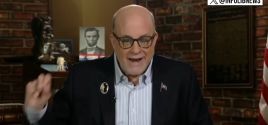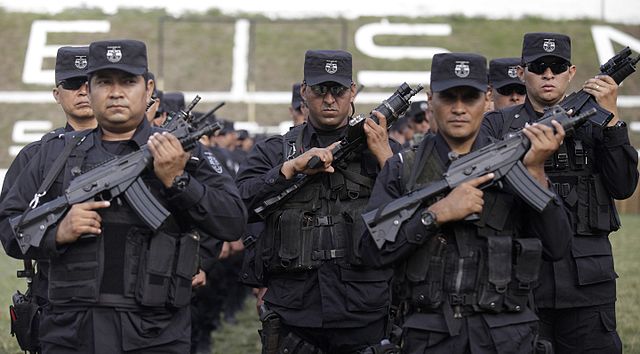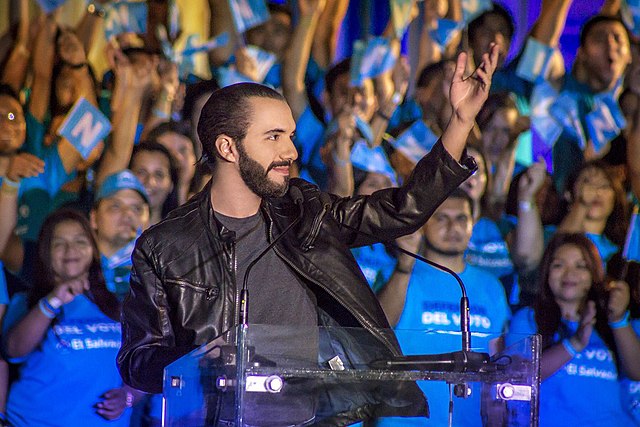El Salvador, Former Murder Capital of The World, Claims ZERO Murders in 300 Days Amid Gang CrackdownChris MenahanInformationLiberation Feb. 19, 2023 |
Popular 
Video Appears to Show Alex Pretti Spit at ICE, Kick Taillight Out of ICE Vehicle in Prior Confrontation

Trump Expected to Pick Kevin Warsh, Son-in-Law of Zionist Billionaire Ron Lauder, as Fed Chair

New TikTok CEO Told World Jewish Congress How They Censored Criticism of 'Zionists'

Mark Levin Urges Trump to Strike Iran and Kill the Ayatollah and His Family

Israeli-American Council Asks Miriam Adelson and Haim Saban How They Control U.S. Politicians
  In just three years under President Nayib Bukele, El Salvador went from the murder capital of the world to reporting "zero murders in 300 days" thanks to a fierce crackdown on gangs which saw 64,000 suspected gang members rounded up and thrown in jail. In just three years under President Nayib Bukele, El Salvador went from the murder capital of the world to reporting "zero murders in 300 days" thanks to a fierce crackdown on gangs which saw 64,000 suspected gang members rounded up and thrown in jail.
From Reuters, "El Salvador vows gang crackdown will go on as citizens cheer safer streets": SAN SALVADOR, Feb 15 (Reuters) - El Salvador's state of emergency to combat gangs, which has widespread public support despite a growing prison population and allegations of human rights abuses, will be maintained until all criminals are captured, the country's security minister told Reuters.  "As long as we have these murderers and these terrorists fleeing and escaping within the country, this measure must continue," Security Minister Gustavo Villatoro said in an interview last week in his office in San Salvador.Sounds like what the U.S. is doing to the J6 protesters. But the vast majority of people in El Salvador say they approve of the hard-line approach and feel safer. A survey this month by pollsters CID Gallup found that 92% of the population supports the state of exception.In contrast, the Biden regime is inviting all these criminals in and pushing for them to be given US citizenship. For ten residents Reuters spoke to in neighborhoods around San Salvador once dominated by gangs the crackdown has transformed their lives for the better. They now can go outside at night, spend time at parks and soccer pitches, receive visitors from other parts of the city and even order fast food delivery - all unthinkable when the gangs roamed.Crime in the West is viewed as an immutable force for which only the symptoms can be treated through reparations, "restorative justice" and "social equity." President Bukele has proven that's all a lie. Whereas Bukele is rounding up gang members en masse and throwing them in jail, San Francisco is passing the "CAREN Act" to punish "entitled" white women for calling the police on non-white suspects who make them feel threatened. The US could be a safe country if our leaders wanted it to be. Instead, they empower criminals on all fronts and punish the law-abiding for defending themselves. Turning America into a Third-World s-hole was a choice. With the right leaders and political will, this sinking ship could be turned around at any time. Follow InformationLiberation on Twitter, Facebook, Gab, Minds and Telegram. |



